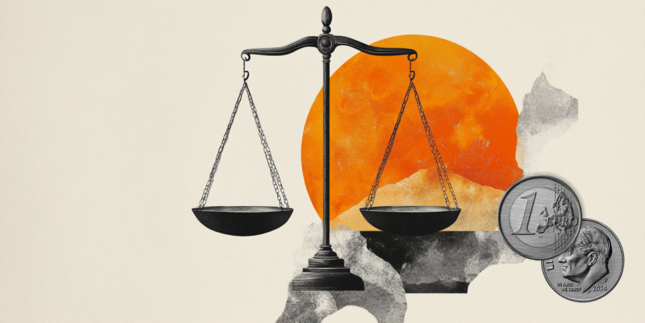USD/JPY Forecast and News
USD/JPY tumbles to near 149.00 as Trump tariff fears improve Yen’s safe-haven appeal
USD/JPY slides to near 149.00 as the Japanese Yen strengthens due to multiple tailwinds. Investors expect Trump’s tariffs could weigh on the US economic outlook. The BoJ is expected to raise interest rates in the May policy meeting.
Latest Japanese Yen News
USD/JPY Technical Overview
The USD/JPY pair falls sharply to near 149.00 during North American trading hours on Tuesday. The pair faces intense selling pressure as the Japanese Yen (JPY) outperforms, given its safe-haven status while investors bracing for the release of a detailed reciprocal tariff plan by United States (US) President Donald Trump on Wednesday.
Fundamental Overview
Though the US Dollar (USD) also carries a safe-haven status, it struggles to attract bids as investors expect Trump tariffs will prompt economic risks in the US economy. It will be US importers who will bear the burden of higher tariffs and will pass on to consumers. Such a scenario will significantly diminish the purchasing power of households.
According to the Washington Post, the White House aides have drafted a proposal to impose 20% tariffs on most imports to the US.
The strength in the Japanese Yen (JPY) is also driven by growing expectations that the Bank of Japan (BoJ) will raise interest rates in the May policy meeting. With inflation remaining above 2% due to strong consumption and wage growth, the BoJ could deliver a 25 basis-point hike in May," analysts at ING said.
Meanwhile, weak US ISM Manufacturing Purchasing Managers Index (PMI) for March, and soft JOLTS Job Openings data for February has also exerted some pressure on the US Dollar. The ISM Manufacturing PMI came in lower at 49.0 against estimates of 49.5 and February's reading of 50.3. A figure below 50.0 suggests that the manufacturing sector activity contracted.
US employers posted 7.57 million jobs in February, slightly lower than the expectations of 7.63 million and the prior release of 7.76 million.
USD/JPY Big Picture
USD/JPY Bullish Themes
USD/JPY Bearish Themes
Latest JPY Analysis
Editors' picks

EUR/USD trims losses and approaches 1.0800 after US data
The US Dollar renewed its bullish momentum on Tuesday, pressuring EUR/USD and keeping the pair under the critical 1.0800 threshold following the release of US ISM Manufacturing PMI and JOLTS readings.

GBP/USD meets support around 1.2880, USD remains strong
After bottoming out around the 1.2880 region, GBP/USD now manages to attempt a bounce and flirt with the 1.2900 zone in the wake of weaker-than-expected US data releases.

USD/JPY tumbles to near 149.00 as Trump tariff fears improve Yen’s safe-haven appeal
USD/JPY slides to near 149.00 as the Japanese Yen strengthens due to multiple tailwinds. Investors expect Trump’s tariffs could weigh on the US economic outlook. The BoJ is expected to raise interest rates in the May policy meeting.

Gold looks range bound above $3,100
Gold is easing from its fresh record high near $3,150 but remains well supported above the $3,100 mark. A generalised pullback in US yields is underpinning the yellow metal, as traders stay on the sidelines awaiting clarity on upcoming US tariff announcements.

WTI consolidates below $69.00; traders seem non-committed amid mixed cues
West Texas Intermediate is trading around $71.35 during the early Asian session on Tuesday. The WTI price rises on supply worries after US President Donald Trump threatens Russia with oil tariffs.
Majors
Cryptocurrencies
Signatures
USD/JPY YEARLY FORECAST
How could USD/JPY move this year? Our experts make a USD/JPY update forecasting the possible moves of the yen-dollar pair during the whole year.
USD/JPY FORECAST 2025
The US Dollar could decline against some currencies but not against the Yen. Why? Because the Japanese currency is a safe-haven asset sensitive to tensions in Asia. If Sino-American tensions ease, it would likely fall. Central banks are slow movers, and the Bank of Japan – especially under Governor Kazuo Ueda – is even slower. Ueda and his colleagues are expected to drag their feet and only mention rate hikes as an effort to keep the Yen supported. Read more details about the forecast.
USD/JPY could trend up in the latter half of the year in response to more hawkish Fed policy and disillusionment with the BoJ's lack of rate hikes.
MOST INFLUENTIAL POLITICAL EVENTS IN 2025 FOR USD/JPY
Politics will likely be more dominant in 2025. The main reason is Trump’s new administration, but political instability in Japan will also play a role. In case Trump follows through with some of his threats, the Yen could benefit in two ways. First, when worries grow, it benefits, as mentioned earlier. Secondly, Japan could benefit from trade diverting away from China.
The Fed isn’t expected to raise rates in 2025, but refraining from bringing borrowing costs back to around 3% – nor intending to do so – would be enough to keep the US Dollar at an advantage over all currencies, including the safe-haven Yen. While inflation hit the shores of Japan, it is hard to see the BoJ further raising rates while the entire world is slashing them.
Influential Institutions & People for the USD/JPY
The US Dollar Japanese Yen can be seriously affected by news or the decisions taken by two main central banks:
The Federal Reserve Bank (Fed)
On the other
FED Official Website, on Twitter and Facebook
The Bank of Japan (BOJ)
The Bank of Japan is the central bank of Japan and it's a juridical person established based on the Bank of Japan Act, nor being a government agency either a private corporation. The most important missions of the BOJ are the following: to issue and manage banknotes, to implement monetary policy and to ensure stability of the financial system. Almost all of the decisions are taken by the Policy Board, formed by a bunch of members working to provide currency and monetary control and setting the next moves that the central bank will take.
BOJ Official Website and on Twitter
Jerome Powell
Jerome Powell took office as chairman of the Board of Governors of the Federal Reserve System in February 2018, for a four-year term ending in February 2022. His term as a member of the Board of Governors will expire January 31, 2028. Born in Washington D.C., he received a bachelor’s degree in politics from Princeton University in 1975 and earned a law degree from Georgetown University in 1979. Powell served as an assistant secretary and as undersecretary of the Treasury under President George H.W. Bush. He also worked as a lawyer and investment banker in New York City. From 1997 through 2005, Powell was a partner at The Carlyle Group.
Jerome Powell Fed's Profile and Wikipedia
Kazuo Ueda
Kazuo Ueda is the 32nd and current Governor of the Bank of Japan. He is a professor and the dean of the business department at Kyoritsu Women's University in Tokyo and the external director at JGC Holdings Corp, an engineering company and at the state-owned Development Bank of Japan. The 71-year-old is widely seen as an expert on monetary policy but is seen as a surprise appointment by analysts. He was not even considered a dark-horse candidate. Ueda wasn’t really on their radar because the BOJ governor job has traditionally been assumed by a long-serving Finance Ministry bureaucrat or central bank official.
Ueda on Wikipedia's Profile
BOJ NEWS & ANALYSIS
FED NEWS & ANALYSIS
About USD/JPY
The USD/JPY (or US Dollar Japanese Yen) currency pair belongs to the group of 'Majors', a way to mention the most important pairs in the world. This group also includes the following currency pairs: EUR/USD, GBP/USD, AUD/USD, USD/CHF, NZD/USD and USD/CAD. Japanese Yen has a low-interest rate and is normally used in carrying trades. This is the reason why is one of the most traded currencies worldwide. In this pair, the US Dollar is the base currency and the Japanese Yen is the counter currency. The pair represents American (from the United States of America) and Japanese economies.
Trading this currency pair is also known as trading the "ninja" or the "gopher", although this last name is more frequently used when referred to the GBP/JPY currency pair. The US Dollar Japanese Yen usually has a positive correlation with the following two pairs: USD/CHF and USD/CAD. The nature of this correlation is due to the fact that both currency pairs also use the US Dollar as the base currency. The value of the pair tends to be affected when the two main central banks of each country, the Bank of Japan (BoJ) and the Federal Reserve Bank (Fed), face serious interest rate differential.
Related pairs
GBP/USD
The GBP/USD (or Pound Dollar) currency pair belongs to the group of 'Majors', a way to mention the most important pairs worldwide. This group also includes the following currency pairs: EUR/USD, USD/JPY, AUD/USD, USD/CHF, NZD/USD and USD/CAD. The pair is also called 'The Cable', referring to the first Transatlantic cable that was crossing the Atlantic Ocean in order to connect Great Britain with the United States of America. This term was originated in the mid-19th century and it makes GBP/USD one of the oldest currency pairs in the world.
The popularity of the Pound Dollar is due to the fact that represents two strong economies: British and American (from the United States of America). The Cable is a closely watched and widely traded currency pair where the Pound is the base currency and the US Dollar is the counter currency. For that reason, all the macroeconomic data related to the United States and the United Kingdom affects the price of this pair. One of the events which affected most the volatility of the pound vs. dollar was Brexit.
EUR/USD
The EUR/USD (or Euro Dollar) currency pair belongs to the group of 'Majors', a way to mention the most important pairs in the world. This group also includes the following currency pairs: GBP/USD, USD/JPY, AUD/USD, USD/CHF, NZD/USD and USD/CAD. The popularity of Euro Dollar is due to the fact that it gathers two main economies: the European and American (from United States of America) ones. This is a widely traded currency pair where the Euro is the base currency and the US Dollar is the counter currency. Since the EUR/USD pair consists of more than half of all the trading volume worldwide in the Forex Market, it is almost impossible for a gap to appear, let alone a consequent breakaway gap in the opposite direction.
Normally, the EUR/USD is very quiet during the Asian session because economic data that affects the fundamentals of those currencies is released in either the European or U.S. session. Once traders in Europe get to their desks a flurry of activity hits the tape as they start filling customer orders and jockey for positions. At noon activity slows down as traders step out for lunch and then picks back up again as the U.S. comes online.